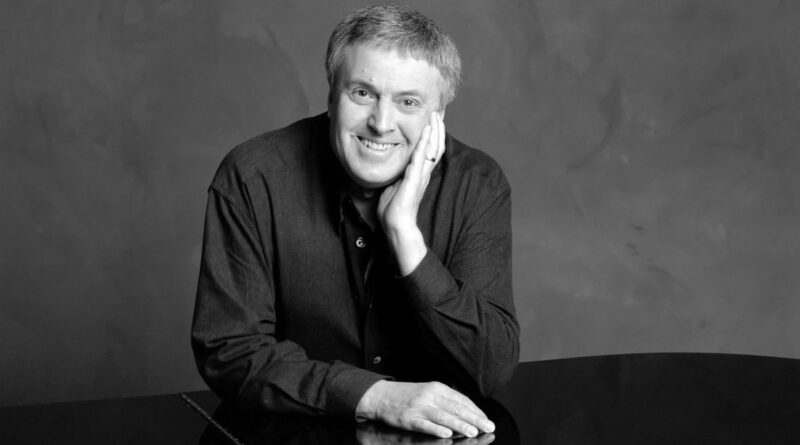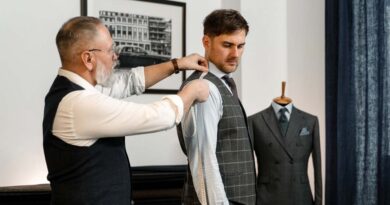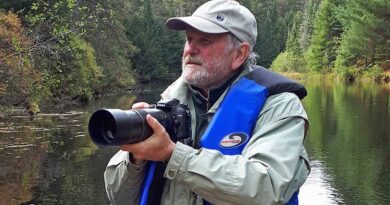This Week In Art/Culture/Entertainment
By John Swartz
This city lost one of its brightest lights this week. Michael Jones died on Wednesday. He was 79 years old. Many of you might not be aware of the weight and value of what he did for Orillia and I hope to convey in this space some brief idea of what those things are and the measure of the man he was.
In a September column 20 years ago I wrote about a new album he recorded with Lance Anderson producing. I remember discovering a few years before there was a musician in town who had recorded and sold over 2 million albums and his name wasn’t Gordon Lightfoot.
Imagine having decided to investigate and write about artists of all types in the town I acquired, thinking I knew everybody and then finding out someone was living right under my nose who was making music so many people enjoyed. I had to meet him.
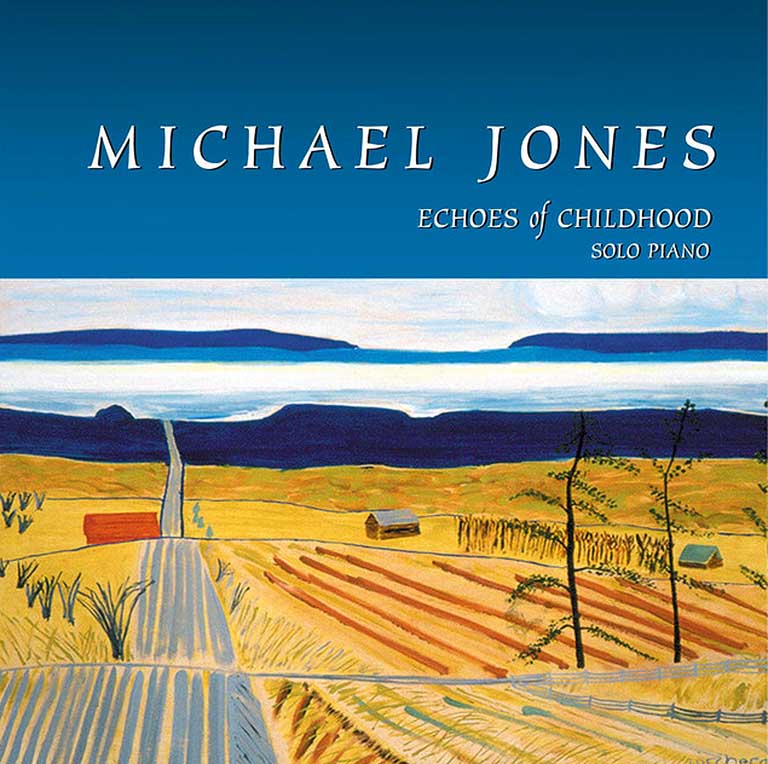
Michael was unassuming. He didn’t do concerts or take every opportunity to say, “did I mention I recorded some music?” In fact, I think he was amused someone like me was making a big deal of it. Up until that album, Echoes of Childhood, he was attached to the Narada label. Some of you who enjoy the kind of mood music the label specializes in might understand the significance he was the label’s biggest selling artist. Echoes was his 14th of 17 albums; the last he made was Deep Song in 2015.
In that review I said, “…from Michael’s style of nursing the music out of his instrument, rather than pounding it out.” I am surprised I used the word nursing, and as I have been thinking of Michael, of the times I was at his house listening to him play or when he played at functions in town, there really isn’t any other word to describe how Michael played. He nursed the notes out of whatever piano he was playing and made the instrument sing.
Michael was an impressionist. As one listens to Morning in Medonte and if you are familiar with the rolling hills and scenery your mind fills in the visual gaps. Solstice, Sunscapes, After the Rain, Magical Child, Touch, and each of all his album’s songs evoke aspects of the title/theme.
The phrase tickle the keys was invented for Michael. The image comes to mind from all the times I watch up close how he played, his hands dancing across the keyboard. It seemed he barely touched the keys, getting the most delicate sound out his piano he could, putting nuance into each phrase. Not that he couldn’t play loud, but there was always purpose to it and loud is relative, I never saw him pound on the keys.
Also, there is a thing which happens with musician artists when they play. The eyes close and you can tell the consciousness is slipping inside the notes they are playing. They shape the notes in the air in ways others can’t just by living inside their music. Michael was like that.
Michael went into the
hospital just before Christmas.
“We had his birthday in the hospital and then we were very fortunate to get him into hospice about the 4th of January,” his wife of 47 years, Judy Archer wrote on Michael’s Facebook page. She’d left a note on Facebook December 30 saying Michael passed his swallowing test and might be going home. This was the first time many of us new Michael was ill. Well, we knew, he had Parkinson’s. Judy said he was progressively becoming less able to take care of himself. A viral infection was in his larynx (not COVID), he wasn’t able to talk or swallow. January 1’s note was the opposite, saying Michael was in palliative care at Soldiers’.
On top of that it was discovered he had emphysema. The risk was if Michael did manage to swallow and it went the wrong way into his lungs he’d develop Pneumonia and that would be it.
Many have heard this story because Michael used it as an example of taking control of oneself. It begins with him sitting at a piano in a hotel lobby outside a restaurant at a conference he was attending, just noodling around, when he was approached by a man who was drawn out of the restaurant to listen. The man asked about Michael’s playing, which knowing Michael was likely improvised – I never heard him play a song written by someone else. The man asked something along the line of, what is Michael doing with is music? To which Michael said nothing; he just fooled around when he could. The man was astonished and said Michael should do something with it. Michael tried to rationalize about time, his career, and etc. The man stopped him and said, “But who will play your music if you don’t do it yourself?”
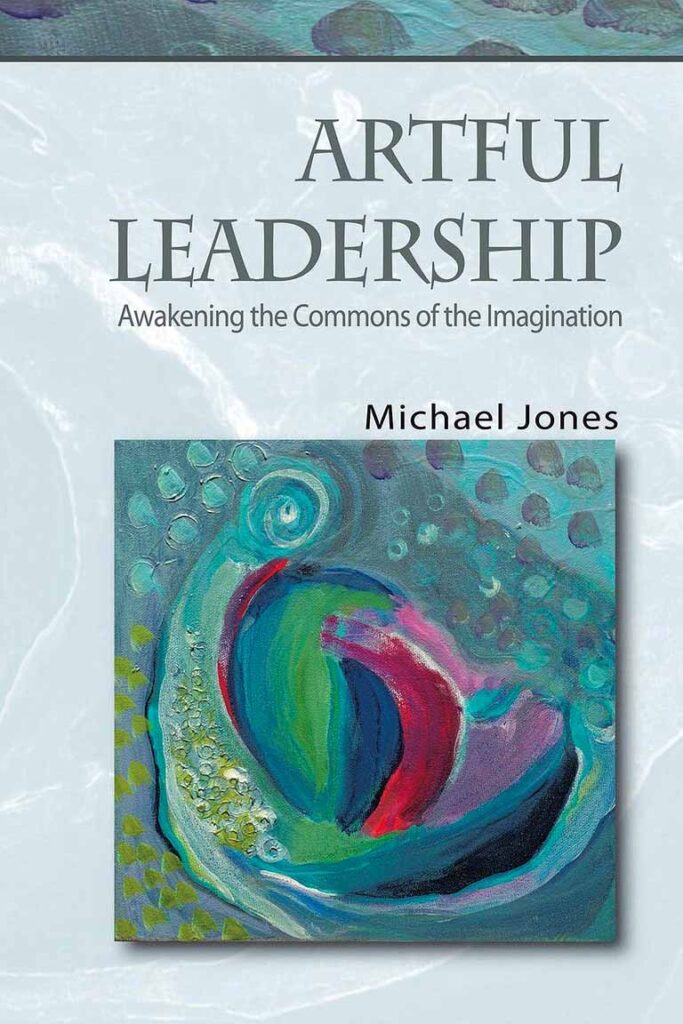
As Michael put it, it was a life changing moment. Michael began a new path which provided life changing moments for those he spoke to and lectured to at business leadership conferences, and to the people who attended workshops and forums he facilitated here in Orillia and elsewhere. It resulted in the recording career and three books on business leadership and community leadership.
He listened to his own counsel in the end and chose to go on his own terms.
“Oh yeah, absolutely,” Judy said of the decision for medically assisted dying. “I know a lot of people have difficulty with this, but for me it was a huge relief for him to go on his own terms.”
“He was not in pain, but he was in a lot of distress emotionally about anxiety about dying,” Judy said. “We did it at 2 o’clock on Wednesday afternoon. It was very peaceful.”
Peaceful. Michael was the most peaceful person I have ever known. While everyone else in the room could be arguing a point, making a case, Michael could step into the conversation with a lowered voice and get everyone’s attention. He would take in what was being said, reformulate it, you’d see the heads nodding in agreement, and then redirect the conversation to where it needed to go.
Michael was the leader of the cultural roundtable, of which I am a member. We didn’t have a leader, or chairperson. We kind of chose Sherry Lawson as the first ‘chair,’ but Michael was the one who directed the tone and scope of the many public forums the roundtable had. When Sherry left the group we all just assumed Michael was our leader.
Michael was the voice at the forums, and behind the scenes. We would have meetings about what topics would be, what was it we were trying to do with them, and what was the goal. It was always Michael, after everyone else put their ideas on the table, who would package it all up and provide the direction about what we were trying to do. The topics sometimes came from City Hall, and our job was to get public reaction and feedback on cultural issues before council acted. Sometimes they came from roundtable members.
I can think of two specific instances where the idea for a theme came from me. Well, one for sure, the other played off something Michael said. Michael always talked about the ‘commons.’ The notion communities that are strong had a means and a place for coming together to sort out the way forward on issues, or just be friendly with each other.
At the time the City had just decided to build a new library, but how it was situated on the block and what to do with the Market was still a moving target. Michael spoke of the commons. Orillia did not have a formal place to gather in for civic functions, except the market served that role in a way.
As Michael spoke I thought of my travels through New England and remembered the towns built around a square. I asked if that was what he meant and he said yes, in a way. He maintained all healthy communities need a sense of place; it didn’t have to be a physical place, but it helped to have one. From that a public forum was developed to ask the community what should be done with the market. To Michael, many things were about the stories; the ones people tell, or are inherent in the time and place. We both thought evolving the market space in a way that would serve the farmers and as a community gathering place would work. The forum attendees also thought so.
Michael always wrote the questions asked of forum attendees. He crafted them in a way that didn’t lead to a specific answer. “What if someone has a better idea,” Michael said once. If we didn’t ask the question in the right way we’d miss it.
The end result was council decided to include redesigning the entire block and making improvements for market vendors, giving them things they had asked for many times (i.e. running water and electricity for the stalls). We can trace back the Market Square as it is today to Michael. What was built is not exactly what Michael or I envisioned, but keeping the same amount of space and providing the utilities happened. Grass under foot unfortunately proved to be too expensive a thing. But there have been other events happen on that block beside the Saturday morning markets. It’s been underutilized, but the concept Michael spoke of is entirely possible to occur there.
The other one came during Angelo Orsi’s term. I had long been calling the block of Peter Street between Mississaga and Colborne the Arts District. Council wasn’t having a great time with public opinion about their actions. I knew that the mayor and several councillors wanted to do something the cultural community would look favorably on and suggested we have a forum to see how the public felt about formally designating the Arts District as a neigbourhood. As always Michael cautioned we might not get the answer we expect, but he thought it was a good next step. He said there might be other neighbourhoods people felt more strongly about naming, and in a roundabout way what may eventually become the Foundry District – that part of West Street where the Orillia Recreation Center and Foundry Park are – comes from the forum. Again, the concepts of the commons, place and storytelling were prominent factors in the forum when it took place. Michael expertly facilitated the flow of the evening. When the report landed at council, the night ended with a formal designation of the block as Orillia’s Arts District.
In both cases, and with others such as the relocation and rebuilding of the Regan House, developing a formal municipal public art policy, and etc., the initial ideas may not have started with Michael, but things which resulted never would have happened without Michael.

Michael was a teacher. He may not have set out to be one at any particular time, but what he did, the way he was were lessons for anyone who paid attention.
Over the years, the facilitating of cultural roundtable forums became a shared thing between Michael and me. He was hard to keep up with. I tried to emulate Michael. I can’t say I’m any good at it now, but I do know I am a lot better than I was. Listening is the hardest thing for anyone to do and Michael was a master at it. I don’t think one can be effective at leading a discussion of any kind without being able to hear what people are saying. Michael’s gift was finding the bits that helped with the subject at hand and making people feel they contributed to the end result.
It wasn’t just for us here he lent his talent to helping us to create a community. He was often not here, having taken engagements to speak to business groups about leadership. Some of the groups he spoke to are the MIT Dialogue Project, the Executive Leadership Programs at the University of Texas at San Antonio, Quaker Foods, the PepsiCo Global Nutrition Group, the Greenleaf Centre for Servant Leadership, the MacGregor Burns Academy of Leadership, the Tamarack Institute and the Fetzer Institute Dialogues on Leading for Transformation.
Locally he facilitate discussion with people interested in re-inventing Leacock and the museum for our times, he was in at the ground floor of the Mariposa Round Table, helped the City facilitate meetings regarding what to do about the Champlain Monument, and recently he was involved with the Gojijing Truth and Reconciliation Roundtable Gwen Boniface organized.
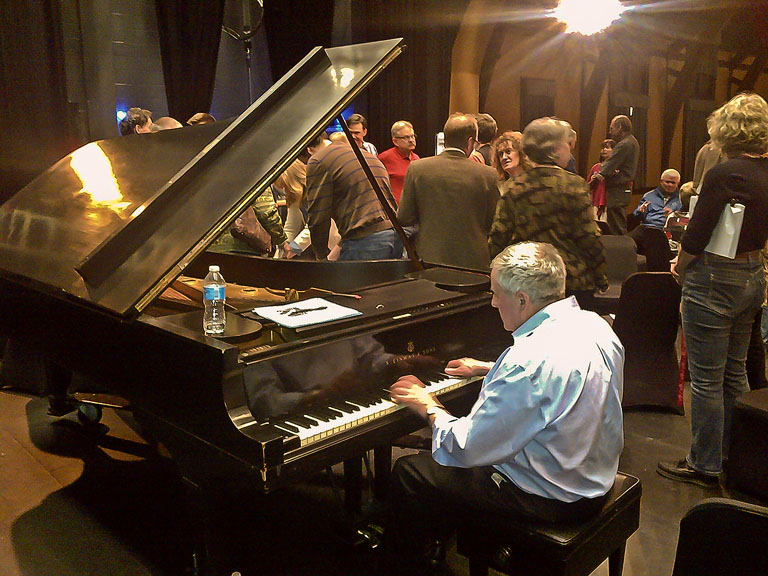
Gravenhurst Cultural Summit he facilitated. (Photo by Krista Storey)
It is also worth noting at many meetings Michael would play some music. The idea was to set the mood, the stage, for the discussion to occur. At the cultural roundtable we called it the enchantment part of the forum. Enchanting it was. Michael the impressionist would play something that meant something to the proceedings. Not a specific tune, but invented music that subtly put us in the frame of mind to tackle the task at hand. He also used the piano for the keynote speeches and workshops he led in faraway places.
“He’s amazing and he did that all over the States with the conferences where he wove his music, but also he would weave the content of what people were saying one session to another, tying each session in with the overall theme,” Judy said. “It’s a process of inquiry for him.”
Michael touched many people. We often didn’t know it. I can say for certain my view of Orillia, what it is, it’s potential, is very different because Michael provided the means to see beyond what is right in front of me. I am not alone. Michael was not a tall person, but there are many of us who looked up to him. The tributes have been coming in to his Facebook page. Judy is getting emails from people talking about the influence Michael had on them.
“It’s been absolutely moving. People have been writing letters, emails. I’ve been sharing them with Michael. We’ve been in tears together. He really mentored a lot of people all over. People are writing tributes all over the place. It’s kind of like having a funeral before a funeral. That’s what it feels like to me,” she said.
Michael had a quiet courage. He did something with his music when many musicians are too afraid to do the same with theirs. He got up in front of people and talked about himself and his ideas, and did so with a confidence others identified with. In the end, despite anxiety about his last decision, he kept control of his destiny.
“I think it was just fantastic that he just twigged to say, “Look, I have a choice. This is the way I can go. I don’t have to sit here, helpless and wondering when I’m going to take my last breath, how am I going to do it.” That takes courage,” Judy said.
If C.H. Hale is recognized as the person who had the most influence of what Orillia became in the 20th century, Michael Jones needs to be recognized for the last 25 years of guidance and leadership he provided. There are many other influential people in the community, but I’m sure many of them will agree Michael showed them how to be influential. There are many physical things and many trains of thought about what we are, or could, or should be present today for which when you peel back the layers you’ll find Michael.
There will be a memorial service February 9. It will be online and you can participate here.
![]()

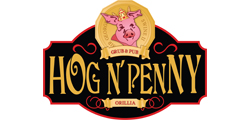

![]()
The Shorts
- We are in a Back to the Future loop as the government announced a stepped emergence from the latest round of restrictions. It means the Orillia Museum of Art and History can reopen and they are doing so February 1 with two new exhibits, a 35 piece quilt show called Colour With a U and From Marbles to Minecraft: A Century of Childhood which contrasts childhood in Orillia between the 1920s and the 2020s (did you know OTACO made toys?).
- One of our favourite songwriters, not from Orillia, but plays here often enough we could adopt her, Skye Wallace has a new tune, Truth Be Told, out for your listening enjoyment.
- Did you get a season ticket here for the Orillia Concert Association’s excellent series? It’s only $70 and I dare you to find a better deal to see three concerts of this type anywhere. The next and first in person concert of the series is February 20 with Sonic Escape (Maria Millar, violin and Shawn Wyckoff, flute) at St. Andrew’s, followed by the Hog Town Brass March 27 at the Opera House. The final concert is May 1 with the Toronto All Star Big Band.
- You can still catch the Orillia Regional Arts and Heritage Awards program on OMAH’s Youtube channel.
- Hibernation Arts is open again after a holiday season break. There is no featured artist at the moment, but the Orillia Fine Arts Association section of wall space has been updated as has the Zephyr Gallery section. Peter Street Fine Arts still has the 6×6 show up.
(Photos by Swartz – SUNonline/Orillia and Images Supplied) Main: Judy Archer’s favourite photo of Michael Jones.

